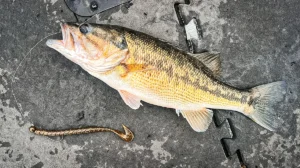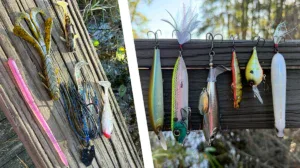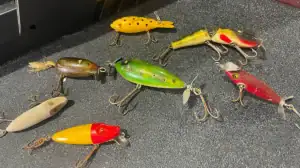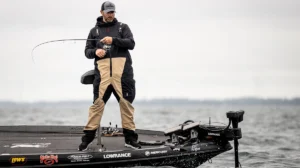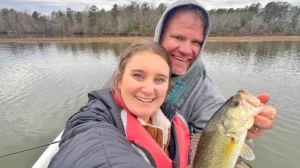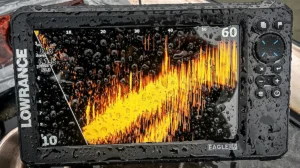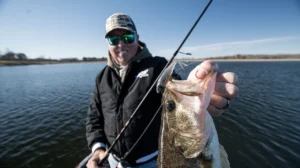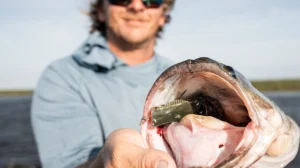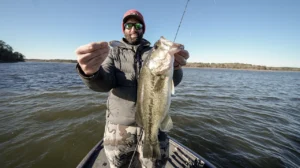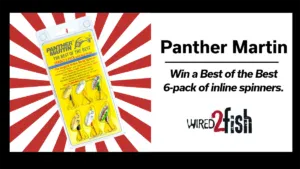Winter fishing with jigs and bobbers (aka corks) is a fantastic way to catch crappies and panfish of all types. Wired2fish contributor, Terry Blankenship, breaks down how to locate and stay in contact with roaming schools of winter crappies and how to use a jig and plastic combo suspended beneath a simple casting bobber to temp bites.
TACKLE USED (retail links)
*Electronics links at the bottom
It’s a common misconception that all gamefish descend into a reduced feeding mode in the winter. While accurate for some species, crappies are a cool water species that continue to feed throughout the winter months, be it ice fishing for crappies or targeting crappies around docks in the Mid-South. Locating and getting a bait suspended just above them is the key.
LOCATION
Blankenship starts his search by examining sheltered banks in creek arms, looking for fish and fish-holding cover like brush piles with side imaging sonar. He drops waypoints on productive-looking spots, then takes to the bow. While winter crappies may hold to cover, they typically roam, often in open water void of anything — this is where forward-facing sonar dominates. Blankenship scans for brush piles and works them first, but as shown in the video, he constantly pans his MEGA Live transducer to keep in contact with the crappies and redirects his casts accordingly.
TACKLE CONSIDERATIONS
Blankenship downsizes his presentation to account for the cooler water. Fish metabolisms are slower, and a smaller finesse jig and plastic combo generates more bites. He opts for a minnow or shad-profiled plastic. So why a bobber? Bobbers keep your presentation in the strike zone for an extended period — a plus when crappies are unwilling to chase. Blankenship prefers a weighted clip-on bobber if fishing in 6 feet or less and will choose a slip bobber when fishing deeper. Don’t hesitate to pop the cork, which flushes the lure forward, and triggers reaction strikes.
ELECTRONICS (retail links)
- FORWARD-FACING SONAR
- FISH FINDER: HELIX 15 CHIRP MEGA SI+ GPS G4N – Buy at HUMMINBIRD
- FISH FINDER: HELIX 12 CHIRP MEGA SI+ GPS G4N – Buy at HUMMINBIRD
- TROLLING MOTOR


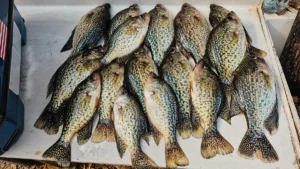
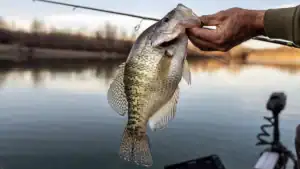
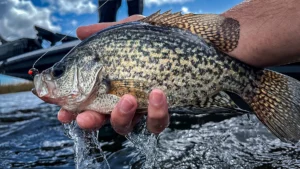
![[VIDEO] Filleting Bluegill Made Easy: Tips and Tricks](https://www.wired2fish.com/wp-content/uploads/2025/05/bluegill-cleaning-300x169.webp)
